39 information that is found on labels of hazardous chemicals
afn.netAmerican Family News Aug 02, 2022 · American Family News (formerly One News Now) offers news on current events from an evangelical Christian perspective. Our experienced journalists want to glorify God in what we do. Quick & Dirty Guide to GHS Chemical Labels | Avery.com The nature of the hazard must be described on GHS chemical labels. Globally standardized symbols convey health, physical and environmental information to transcend language barriers. Supplier Identification. GHS chemical labels must include name, address and telephone number of the supplier. Precautionary Statements.
WHMIS 2015 - Labels : OSH Answers - Canadian Centre for Occupational ... Product identifier - the brand name, chemical name, common name, generic name or trade name of the hazardous product. Initial supplier identifier - the name, address and telephone number of either the Canadian manufacturer or the Canadian importer*. Pictogram (s) - hazard symbol within a red "square set on one of its points".

Information that is found on labels of hazardous chemicals
Know Your Hazard Symbols (Pictograms) - Princeton University The GHS system, part of OSHA's Hazard Communication Standard (HCS), consists of nine symbols, or pictograms, providing recognition of the hazards associated with certain substances. Use of eight of the nine are mandatory in the U.S., the exception being the environmental pictogram (see below). Each pictogram covers a specific type of hazard and ... Proper Labeling Chemical Containers - Hazcom ... - OSHA Review The chemical manufacturer must ensure that primary label is marked with the following information: Product identifier - The name or number used for a hazardous chemical on a label or in the safety data sheet (SDS). Signal word - A word used to indicate the relative level of severity of hazard and alert the user to a potential hazard. The Young Workers Zone : Teaching Tools : Chemical Hazards: WHMIS Labels The WHMIS label is one of the ways used to convey hazard information to users of the product. WHMIS law requires labels for hazardous products. Labels must identify the precautions to take when using the product and state that there is a Safety Data Sheet (SDS) available with more detailed information.
Information that is found on labels of hazardous chemicals. Labels for dangerous goods and hazardous substances | HERMA Ordering of labels for hazardous substances: You can order labels made of white PE film (blank) in standard formats directly from our online-Shop. If you need labels for hazardous substances in special formats, use the order form to tell us what you need. More information about. Seawater-resistant labels. Seawater-resistant, laser print labels GHS Labeling Requirements: The Definitive Guide [2021 Update ... - Luminer GHS stands for Globally Harmonized System of Classification and Labeling of Chemicals. It is an internationally-recognized standard for labeling containers that hold hazardous materials. Currently, more than 65 nations have adopted some version of these standards. Labeling Your Hazardous Chemicals Properly - HCL Labels - Blog Labeling Your Hazardous Chemicals Properly February 19, 2019 bnell232 The UN Globally Harmonized System of Classification and Labeling of Chemicals (GHS) refers to a set of standards surrounding the Safety Data Sheets (SDS) as well as labeling of hazardous chemical containers. apvma.gov.auAustralian Pesticides and Veterinary Medicines Authority The Australian Pesticides and Veterinary Medicines Authority (APVMA) has launched a new form for stakeholders to submit reports of suspected non-compliance and Information Reports. The form will facilitate access to timely and accurate information to help identify and deter instances of non-compliance, to protect Australia’s trade and the ...
Labels - Hazardous Substances Acutely toxic gas Toxic gas Less severe acute health hazards Products with this symbol on the label cause one or more of the following: skin sensitisation, skin and eye irritation respiratory irritation drowsiness or dizziness. Chronic (longterm) health hazards What are the 6 Elements of a GHS Label? - Computype This component of the GHS label is typically placed in the top left-hand corner of the label, and it identifies the hazardous chemical or ingredient that is in this product. It can state the name, code number, or batch number. This allows for the chemical to be confidently identified. 2. Signal Word Identification, Classification and Labelling of Chemicals ... What is a hazardous chemical ? The following properties contribute to risk to health resulting from acute, repeated or prolonged exposure: very toxic or toxic harmful corrosive irritant cancer causing hazards to reproduction can cause non-heritable birth defects sensitizing Fire and explosion hazards may be classified as follows explosive oxidizing Information on hazardous chemical labels | Safe Work Australia A hazardous chemical is correctly labelled if it is packed in a container and has a label written in English. Pictograms and text on the label should be clear. The label must also be firmly fixed to the hazardous chemical's container. It should not be hidden or in a spot where it could be removed, such as on the lid. The label must include the:
Hazard symbols and hazard pictograms - Chemical classification - HSE Hazard pictograms (symbols) Hazard pictograms alert us to the presence of a hazardous chemical. The pictograms help us to know that the chemicals we are using might cause harm to people or the environment. The GB CLP hazard pictograms appear in the shape of a diamond with a distinctive red border and white background. Chemical Hazards and Toxic Substances - Overview | Occupational Safety ... All employers with hazardous chemicals in their workplaces must have labels and safety data sheets for their exposed workers, and train them to handle the chemicals appropriately. The training for employees must also include information on the hazards of the chemicals in their work area and the measures to be used to protect themselves. Chemical Labels | Web's largest array of Hazcom and HazMat Labels Chemical Labels (74045) Chemical Right-to-Know, HazMat and Hazardous Waste Labels have never been more important. Every day, over one million people handle hazardous chemicals in their workplaces. Every year, almost 5% of workers suffer chemical exposures that cause temporary symptoms, permanent injury, debilitating illness, or, even, death. What Required Information Must GHS Labels Include? - MPC These labels, however, must contain required information and other elements, and they must be easily understood. For instance, all shipped hazardous chemical containers must be labeled with a signal word, pictogram, hazard statement, and a precautionary statement for each hazard class and category.
Chemical Safety: Labels and SDSs - Washington State University The Hazard Communication Standard requires that employees have information about the chemicals they are potentially exposed to at work, as well as safe work practices and protective measures to minimize exposure and avoid chemical related injuries and illnesses. Much of that information is included on the container label and in the safety data ...

ComplianceSigns.com Vertical Danger Hazardous Chemicals OSHA GHS Safety Label Decal, 5x3.5 in. Vinyl 4-Pack for Hazmat
Chemical labels, Hazard codes, and Safety Data Sheets Four types of chemical hazards classification in Baker Hazard Code. Health (toxic) Flammability (fire) Reactivity (explosive or reactive) Contact (corrosive) When was the NFPA hazard code system adopted? 1975. The NFPA was adopted to communicate hazards to __________. emergency responders/firefighters.
› tobacco › basic_informationOutbreak of Lung Injury Associated with the Use of E ... Aug 03, 2021 · Vitamin E acetate has not been found in the lung fluid of people that do not have EVALI. Evidence is not sufficient to rule out the contribution of other chemicals of concern, including chemicals in either THC or non-THC products, in some of the reported EVALI cases. CDC will continue to update guidance related to EVALI as appropriate.
› cosmetics › potential-contaminants1,4-Dioxane in Cosmetics: A Manufacturing Byproduct | FDA Mar 03, 2022 · In 1981, we found an average of 50 (ppm) 1,4-dioxane in finished cosmetic products, with a range of 2-279 ppm, and in 1997, we found an average of 19 ppm, with a range of 6-34 ppm . In 2008, FDA ...
Labeling Requirements for Hazardous Materials: A U.S. Legislation ... Flammable solid labeling requirements are covered in 49 CFR § 172.420-172.423, where they are subdivided into three smaller categories: General flammable solids (covered in 49 CFR § 172.420) Spontaneously combustible solids (covered in 49 CFR § 172.422) Solids that are dangerous when wet (covered in 49 CFR § 172.423)
› indoor-air-quality-iaq › volatileVolatile Organic Compounds' Impact on Indoor Air Quality Aug 26, 2022 · At present, not much is known about what health effects occur from the levels of organics usually found in homes. EPA's Office of Drinking Water Regulations List of Contaminants and their MCLs: Organic Chemicals; U.S. Geology Survey's National Water-Quality Assessment (NAWQA) Program. Information on VOCs in Water Sources
osha.europa.eu › en › themesDangerous substances | Safety and health at work EU-OSHA The REACH legislation and the CLP Regulation require chemical manufacturers and suppliers to ensure that standardised safety labels, hazard pictograms and safety data sheets are provided. These provide information on the properties of substances and the hazards associated with them, and guidance on storage, handling and risk prevention.
DOT Hazmat Labels, Placards, and Markings - A Guide Hazard Class Labels are standard hazmat identifiers, designed to meet regulations. Each label has markings that tell what type of hazard is identified on the label. They help identify what type of hazardous material is in a package.
Information that must appear on a hazardous chemical label Checklist: Information that must appear on a hazardous chemical label. Hazardous chemical labels should include several key pieces of information. Chemical safety. Sign up to a FREE 7-day trial! Get the answers you need, when you need them!
Responsibilities for labelling hazardous chemicals - Safe Work Australia Manufacturers and importers If you manufacture or import hazardous chemicals, you must label them correctly in accordance to the model WHS regulations and the 3rd or 7th revised edition of the Globally Harmonized System for Labelling and Classifying Chemicals (GHS). Transitioning from GHS 3 to GHS 7. Australia started a transition from the Globally Harmonized System of Classification and ...
SafetyCulture: Easy Inspection Solution - Get Started for Free SafetyCulture: Easy Inspection Solution - Get Started for Free
Labelling and packaging - Chemical classification - HSE Labels are there to help identify hazardous chemicals and explain what the hazards are and how to avoid them. Packaging is also important to ensure that chemicals are stored and disposed of...
Chemical Container Labels | EHS - University of Washington The Hazard Communication Standard requires secondary chemical container labels contain at least the following information: Identity of the contents (spell out chemical names) Signal word, if known or suspected (e.g., "danger", "warning") Hazards, if known or suspected (e.g., "flammable", "corrosive", "irritant")
Reference Guide to GHS Container Labels | UArizona Research, Innovation ... The signal word for each hazardous chemical can be found on the SDS and must be placed on the label. Labels for mixtures of hazardous chemicals must include the more severe signal word (e.g., if a one chemical requires "Danger" and another requires "Warning," "Danger" is used as the signal word for the mixture).
Safety Labels for Hazardous Chemicals | NSTA • Labels on containers used for storing hazardous chemicals must include the chemical identification and appropriate hazard warnings. • The contents of all other chemical containers and transfer vessels, including beakers, flasks, reaction vessels, and process equipment, should be properly identified. Collection and storage of waste
› sites › defaultBRIEF - Occupational Safety and Health Administration The label provides information to the workers on the specific hazardous chemical. While labels provide important information for anyone who handles, uses, stores, and transports hazardous chemicals, they are limited by design in the amount of information they can provide. Safety Data Sheets (SDSs), which must accompany hazardous chemicals,
Labeling requirements of hazardous chemicals. | Occupational Safety and ... The using employer has the responsibility to ensure that each container of hazardous chemical in the workplace is labeled, tagged, or marked with the following information: i) Identity of the hazardous chemical (s); ii) Appropriate hazard warnings.
The Young Workers Zone : Teaching Tools : Chemical Hazards: WHMIS Labels The WHMIS label is one of the ways used to convey hazard information to users of the product. WHMIS law requires labels for hazardous products. Labels must identify the precautions to take when using the product and state that there is a Safety Data Sheet (SDS) available with more detailed information.
Proper Labeling Chemical Containers - Hazcom ... - OSHA Review The chemical manufacturer must ensure that primary label is marked with the following information: Product identifier - The name or number used for a hazardous chemical on a label or in the safety data sheet (SDS). Signal word - A word used to indicate the relative level of severity of hazard and alert the user to a potential hazard.
Know Your Hazard Symbols (Pictograms) - Princeton University The GHS system, part of OSHA's Hazard Communication Standard (HCS), consists of nine symbols, or pictograms, providing recognition of the hazards associated with certain substances. Use of eight of the nine are mandatory in the U.S., the exception being the environmental pictogram (see below). Each pictogram covers a specific type of hazard and ...
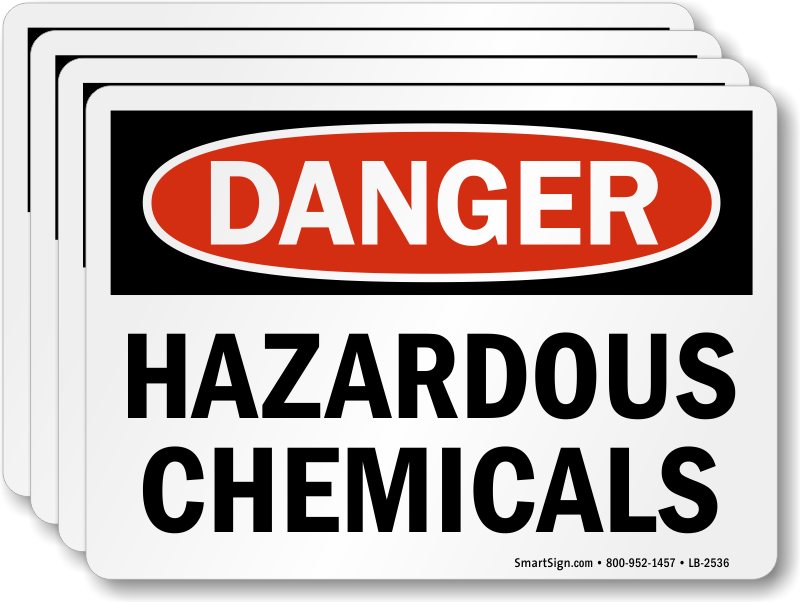


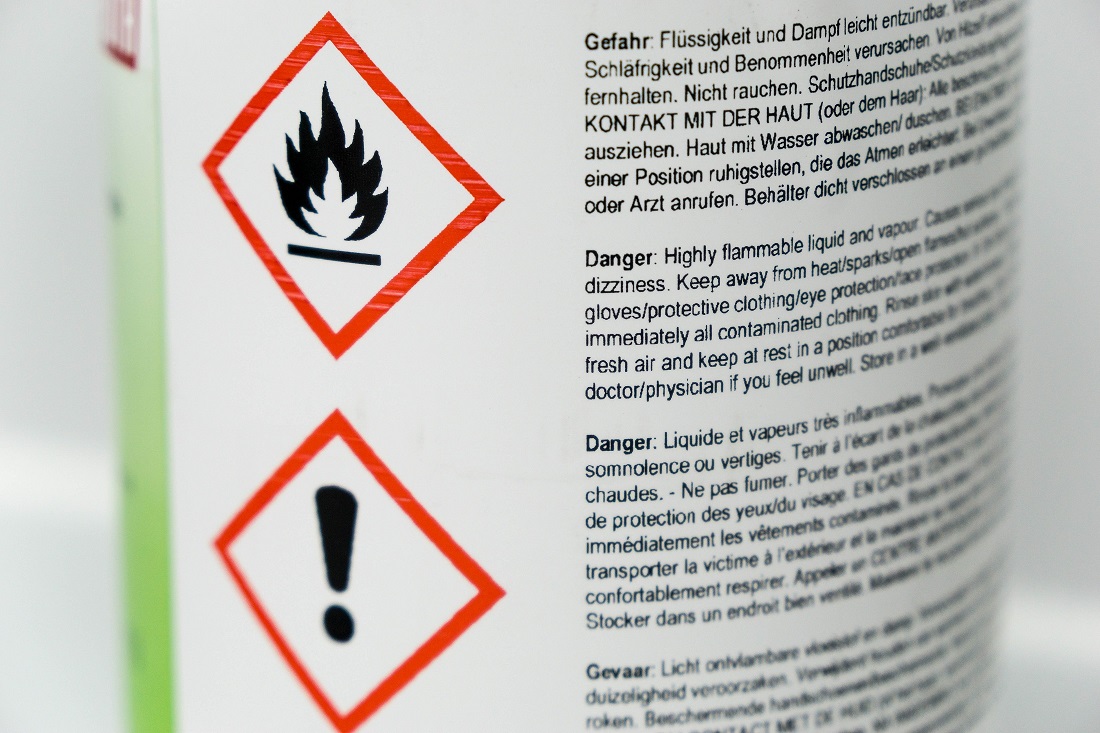

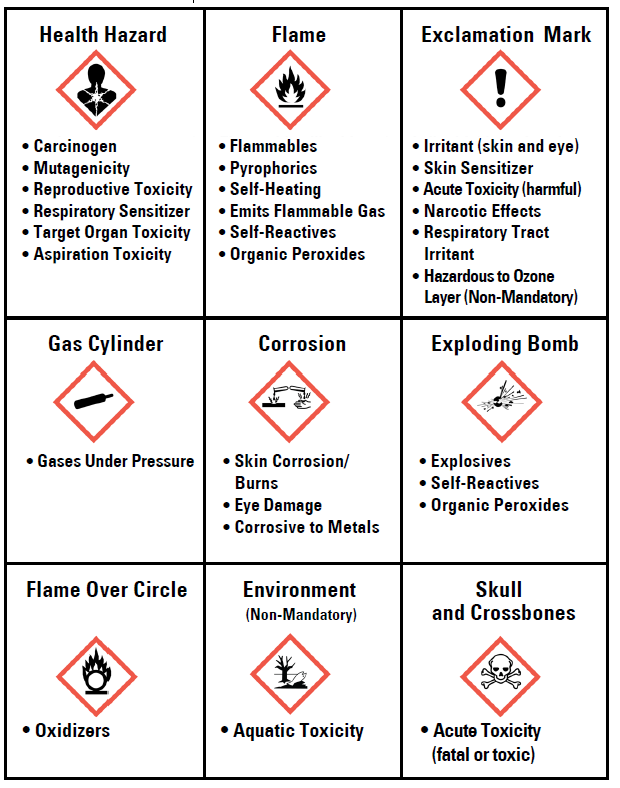

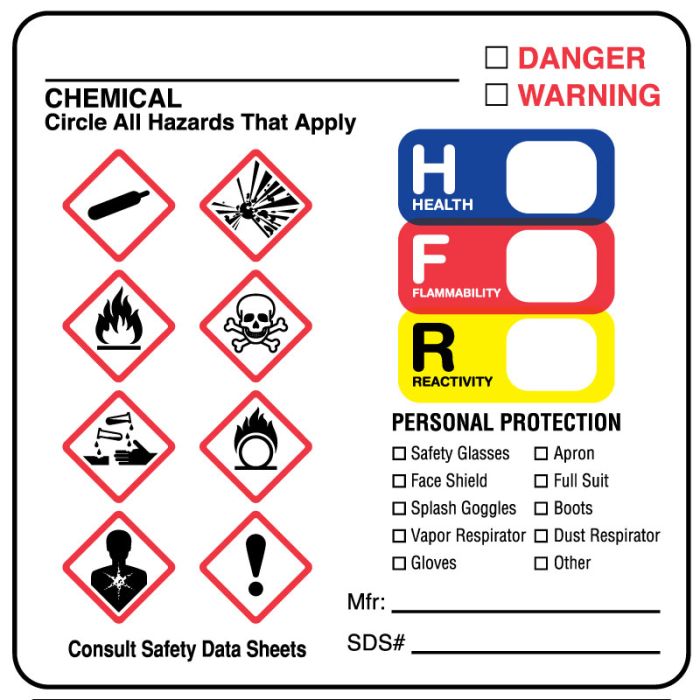
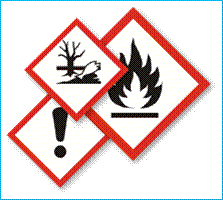


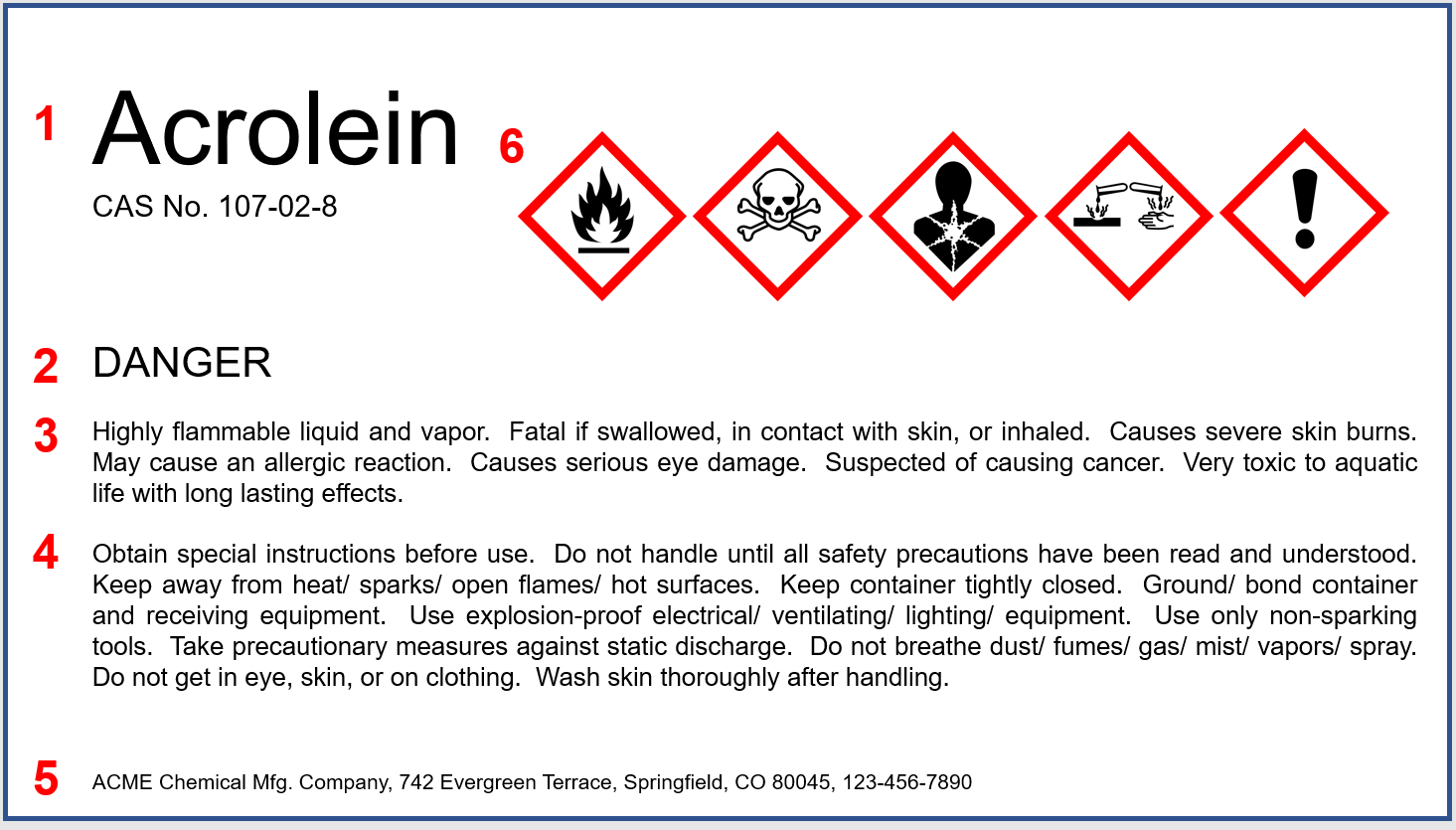
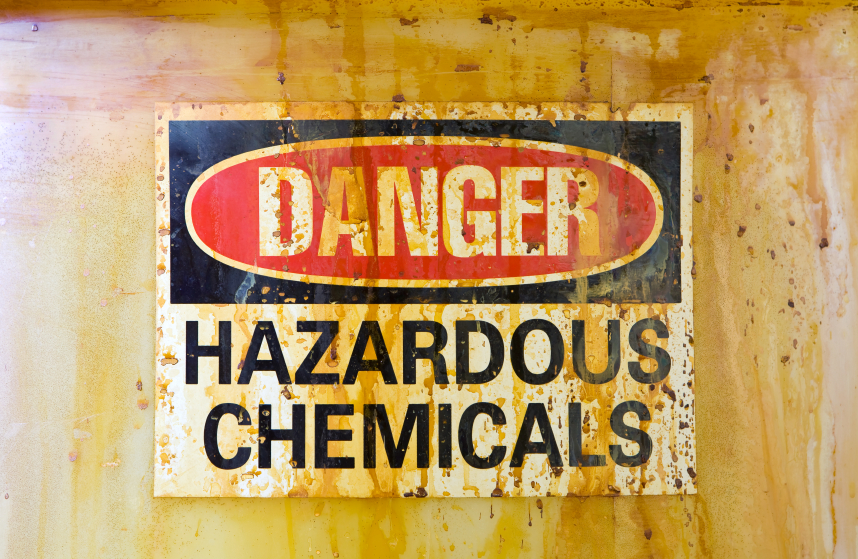
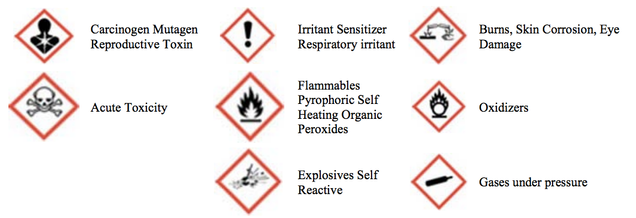

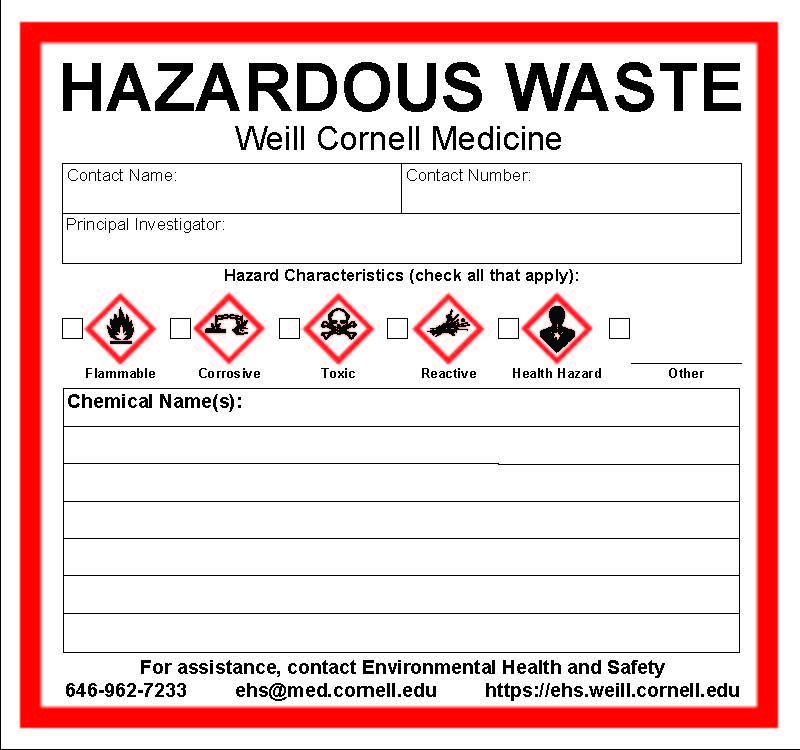
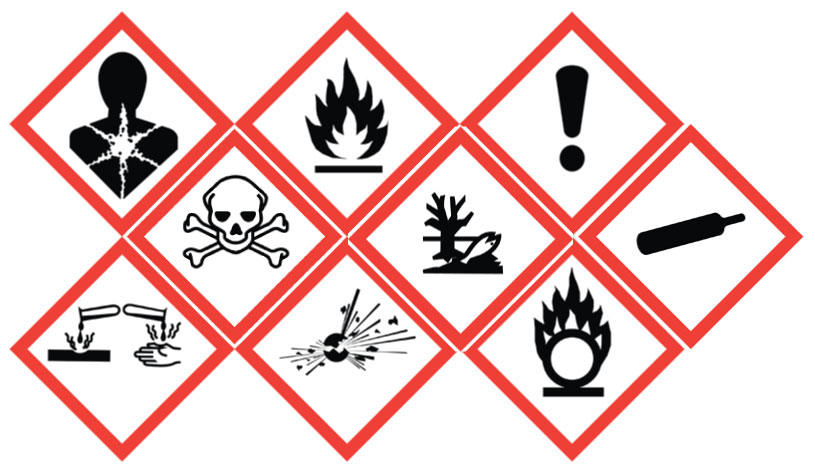
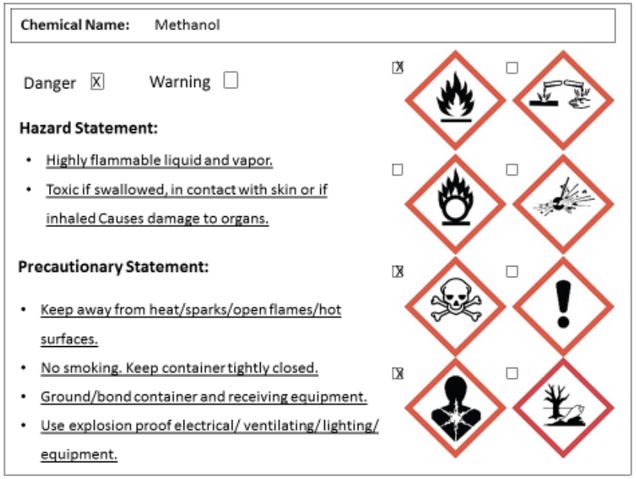

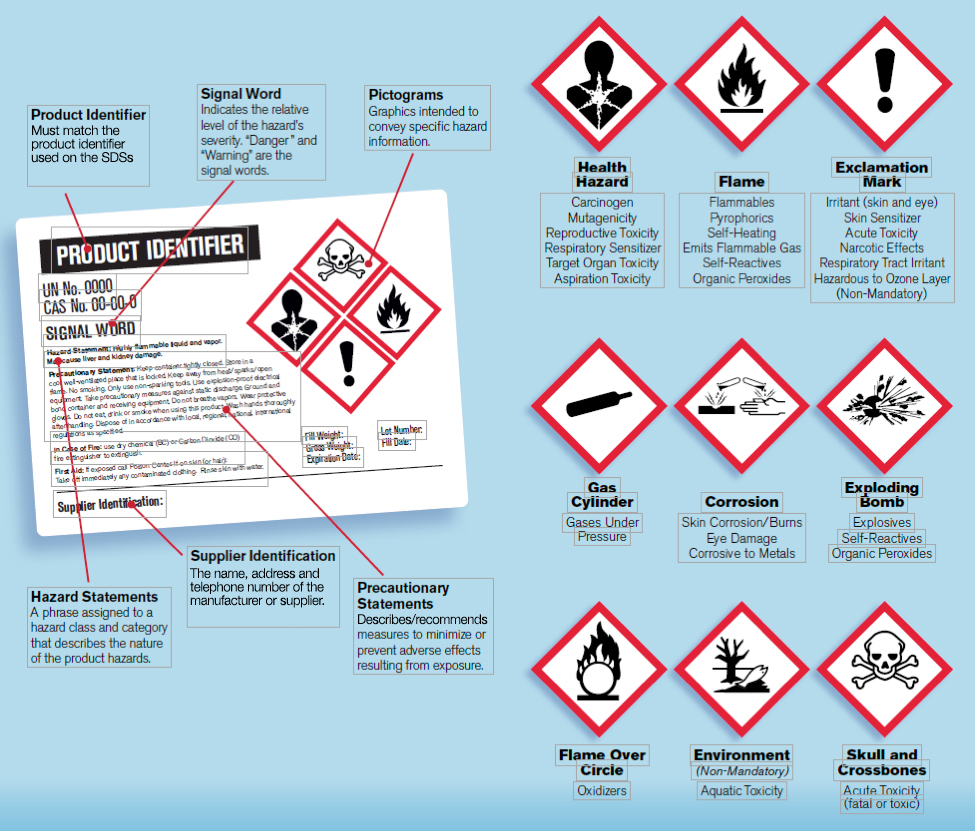

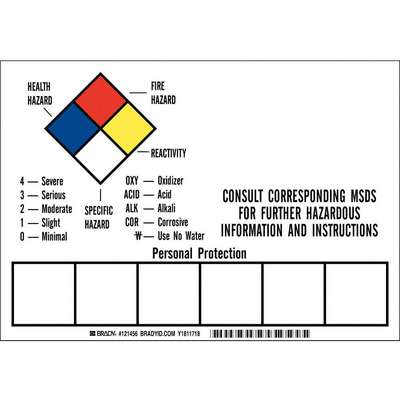
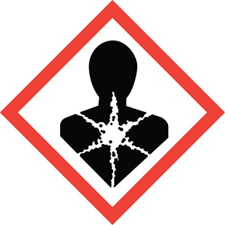

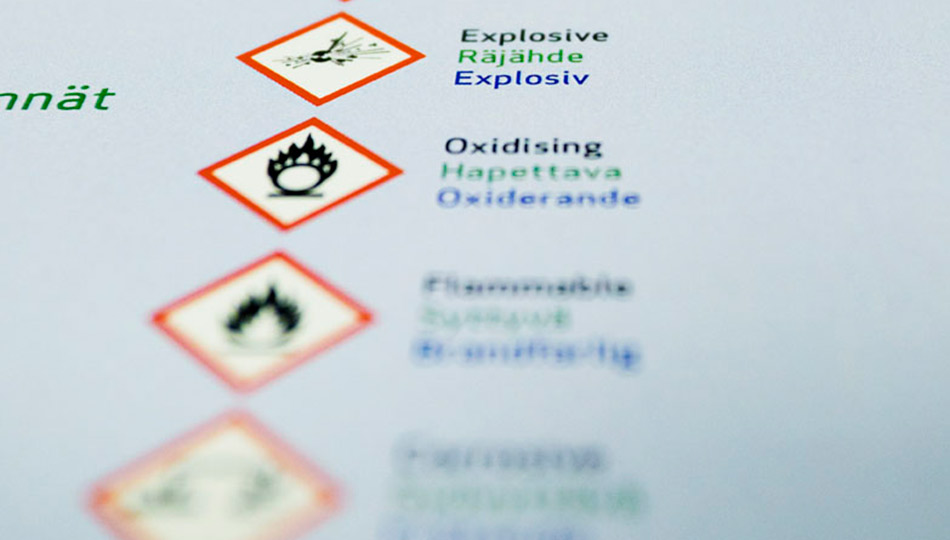




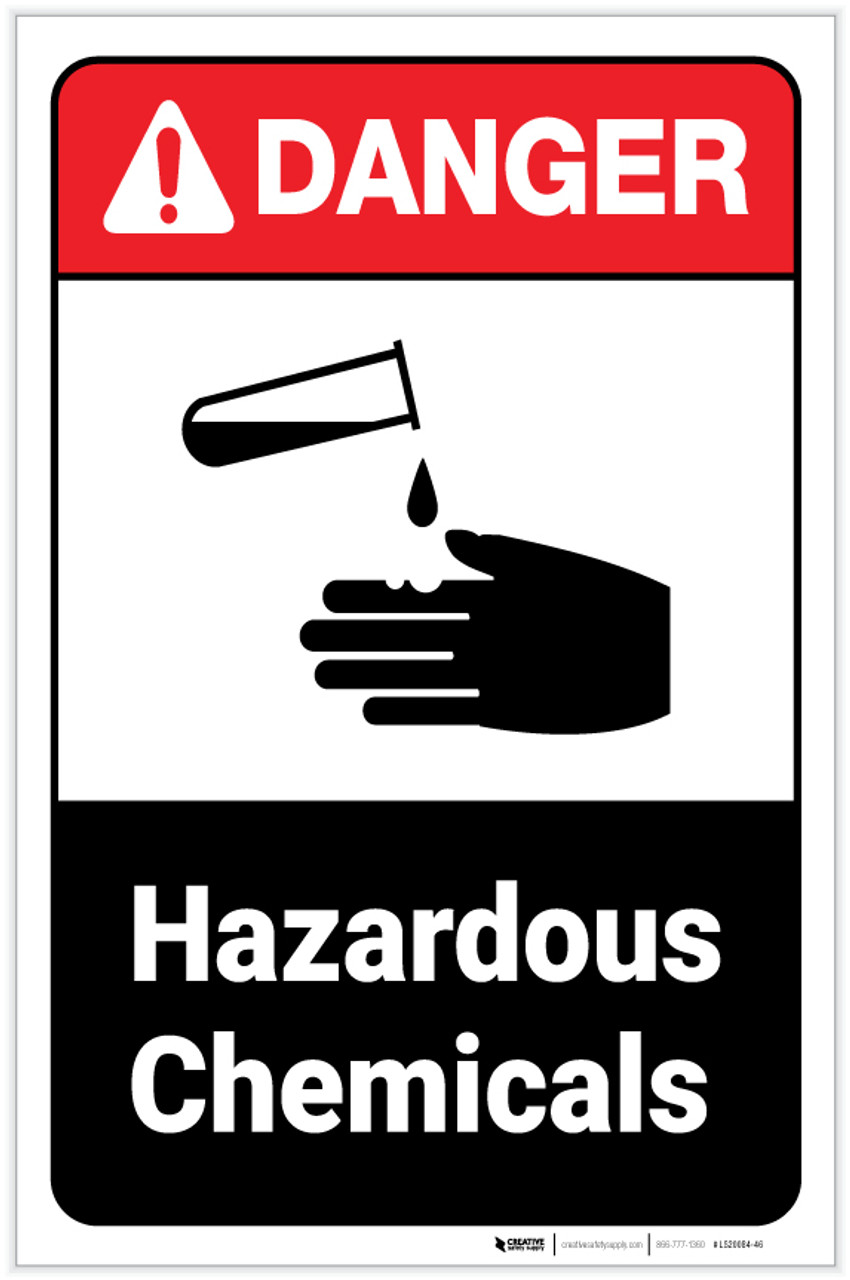
.jpg?width=320&name=ghs-1%20(1).jpg)

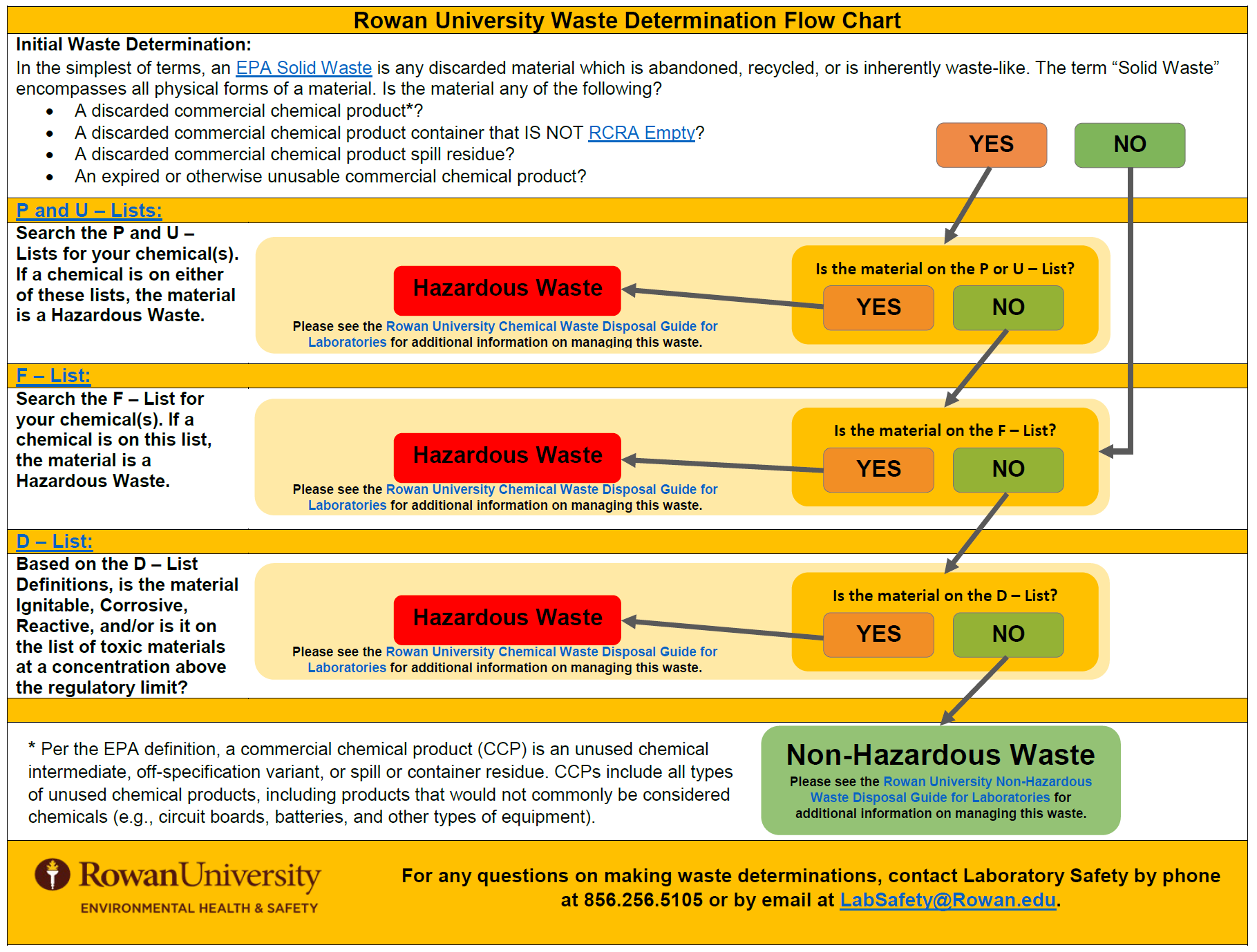
Post a Comment for "39 information that is found on labels of hazardous chemicals"